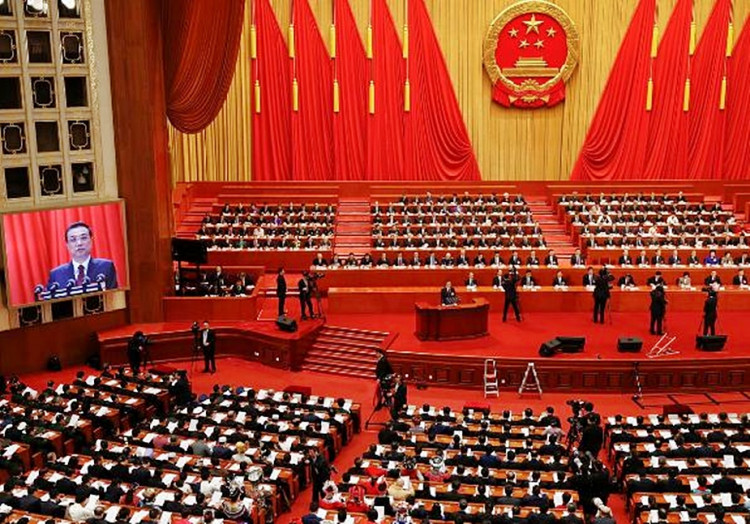Premier Li Keqiang announced slower economic growth for China this year and into the next and asked the country to brace itself for tougher times ahead. He also revealed a range of economic stimulus measures to rev-up China's slowing economy.
In his opening remarks at the annual National People's Congress in Beijing yesterday, Li said China expects its GDP for this year to grow from 6.0 to 6.5 percent, sharply lower than the 6.6 percent expansion in 2018. The growth target for the year is the lowest in three decades, and reflects the harmful effects of Trump's trade war against China.
He also revealed the government's budget deficit in 2019 will widen to $412 billion (RMB2.76 trillion), representing 2.8 percent of China's gross domestic product.
Li said the many risks facing China's economy warrant "stronger mitigating action" as growth will decelerate further this year. Among these mitigating actions are economic stimulus measures such as cuts in taxes and fees worth nearly $289 billion (RMB2 trillion).
For businesses, the value-added tax rate for the manufacturing sector will be reduced from 16 percent to 13 percent. Li also said the duty for transportation and construction will be cut from 10 percent to 9 percent.
He revealed plans to increase China's infrastructure financing to boost growth. Some $320 billion (RMB2.15 trillion) worth of local government special bonds will be issued this year to meet spending needs for key projects. A special bond is a type of debt asset that allows priority projects such as railways and roads to still secure funding.
"We will face a graver and more complicated environment as well as risks and challenges ... We must be fully prepared for a tough struggle," according to Li.
He also said the many risks and potential problems that have built up over the years demand stronger mitigating action, "but in doing so we need to observe objective laws and take the right approach."
"Our approach must be firm, controllable and systematic, and it should be applied with the right degree of intensity."
Li further pledged to keep exchange rate of the Chinese yuan stable, while also saying monetary policy will neither be too tight nor too loose.
Li said the arrangements "meet the demands of spending across various areas, send a signal of proactive and vigorous fiscal policy, help to better guide enterprise expectations, more strongly boost market confidence, and also take into consideration the importance of keeping policy options open in case there is a need to respond to risks in the future."
Li confirmed that the People's Bank of China (the central bank) will continue to use monetary policy tools, especially those targeted at small and medium-sized lenders so they can provide loans to more private companies.
He cautioned China will "refrain from using a deluge of stimulus policies." He said the country's "prudent monetary policy will be eased or tightened to the right degree" so as to keep major economic indicators "within an appropriate range."





